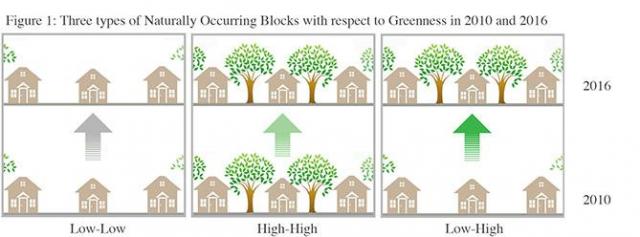Project Summary
The project team examined the impact of greenness and greening interventions (tree plantings) on cardiovascular disease (CVD) diagnoses. The study took advantage of a natural experiment to increase greenness in low-income neighborhoods in Miami-Dade County. The team used a prospective, longitudinal quasi-experimental design to study the impact of block-level greenness exposure on CVD outcomes in low-income Miami-Dade Medicare beneficiaries.
Research Questions/Aims
- Do greening interventions have a beneficial effect among low-income Medicare beneficiaries?
- What is the relationship between greenness to the number of CVD diagnoses?
- Does the relationship between greenness and CVD differ by race/ethnicity, low vs. high urbanicity, and low vs. high neighborhood crime?
Actionability
- Inform advocacy efforts, policy decisions, and resource allocation with respect to greening programs.
Outcomes
Number of CVD diagnoses (hypertension, ischemic heart disease, heart failure, stroke/transient ischemic attack, atrial fibrillation, and acute myocardial infarction) and mortality.
Methodology

To test if greenness impacts the number of CVD diagnoses, the investigators compared the two control groups (High-High vs. Low-Low) on the number of CVD diagnoses for 2016, co-varying the number of 2010 CVD diagnoses, and controlling for potential confounders such as income, crime, racial/ethnic composition, and number of elders per block. They used a multi-level framework to model the impact of High-High vs. Low-Low greenness blocks on number of CVD diagnoses over time. Parallel analyses were conducted to study the impact of greening interventions on CVD, with the comparisons between the two block groups that were low in greenness in 2010, one group which received a greening intervention (Low-High) and one group that did not (Low-Low).

- University of Miami Departments of Public Health Sciences
- University of Miami School of Architecture
- Miami Dade Parks
- Arizona State University
- U.S. Department of Housing and Urban Development
- The Nature Conservancy
- National Recreation and Park Association
- Miami-Dade County
- Health Foundation of South Florida
- Florida Department of Health
- The American Institute of Architects